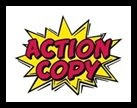Although
The Awkward Adverb doesn't have a Twitter account, we haven't missed the buzz about the social networking platform. We recently happened upon a blog posting that gives advice about how to use Twitter strategically. Among the writer's recommendations, she posts several sample Twitter messages. Here's one:
RT @kellyecrane Great idea: PR consultants, let's use the #soloprpro hashtag to share information! http://bit.ly/3wkIZu
To the uninitiated, this looks like a bunch of gibberish. After doing a bit of research, we will attempt to translate:
- The "RT" means it's a retweet, or reposting of someone else's Twitter message.
- The @kellyecrane gives credit to the person who first posted this tweet and sends her an alert about the retweet. She apparently is a public relations professional.
- The # character is called a hash mark, maybe because it kind of looks like a plate of hash browns?
- Words prefixed with the # create "hashtags," or keywords that help Twitter users find related tweets.
- The http://bit.ly/3wkIZu is a stand-in link that's shorter than the true web address, but it will take you to the same page. The author uses it to stay within Twitter's 140 character limit.
Twitter has been embraced by millions of users, but its growth is reported to be slowing. One barrier to greater adoption might be that this odd, new language intimidates and confuses potential users.


.gif)





I'm no grammar fanatic, but I am a web guy and I have to wonder why you'd use 'blog posting' in your opening paragraph. If you leave off the word 'blog', would you have said you happened upon a posting?
ReplyDeleteWhen someone updates their blog, they have created a new blog post or a new blog entry. When they are creating the entry they are posting, but when they are done they have created a post.
So I would have said 'happened upon a new blog post'. Of course this is all web speak anyway, and I don't by any means think the rules are nailed down. I'm just going by common usage in the field.
Also you left out an article in front of stand-in. :)
BTW if you like copy editors, you'll LOVE this: http://torontoist.com/2009/11/disgruntled_star_editor_takes_revenge.php
ReplyDeleteWill,
ReplyDeleteTo address your question, this content is also sent out in an e-mail newsletter, so I thought the word "blog" before "posting" would help with clarification.
According to my dictionary (Merriam-Webster's), the word "posting" means "something (as in a message) that is published online." This definition also appears under "post," however, and I think you're right, that "post" would have been a better choice.
I also fixed the article error you pointed out. Thanks for your comments.